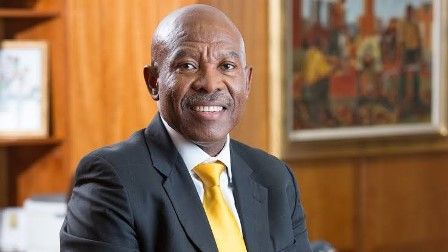
What is the News on Load shedding?
We have had more than 155 consecutive days of uninterrupted power supply, or the dreaded term of ‘load shedding’ or ‘reduction’.
Apart from a few maintenance issues, we seem to have had a stable run for a while. The disruptions have hindered both economic growth and have forced businesses to hike prices to keep up with emergency electricity expenses.
For obvious reasons, The Reserve Bank feels that resolving the issue of frequent power outages in South Africa will potentially result in an increase in our economic growth and further combat growing inflation.
“There’s a growth side and there’s an inflation side; there may be a double whammy, there may be a good story here, let’s hope that for the first time, given the fact that load shedding, or the lack of it post the election, that there will be an upward revision of the forecast and that will be very good for the economy.” Deputy Governor Rashad Cassim told reporters on Thursday.
Being Africa's most industrialised economy, unfortunately South Africa has been severely impacted by the energy crisis and the decline of its rail, ports, and other infrastructure. As a result, the country's GDP has only increased by an average of less than 1% in the last decade, which is insufficient to keep up with the staggering 33.5% unemployment rate - one of the highest in the world.
“If we deal with these structural constraints, we can lift our GDP growth potential to 3.5%, which would basically mean that we can continue to accelerate our growth at least until we hit that 3.5%,” Governor Lesetja Kganyago said, a South African economist and central banker of the South African Reserve Bank. “By solving those structural constraints, you are providing the space for monetary policy to provide the support for the economy.”
According to the central bank, there is an expected 1.1% growth for the economy in 2024 and a 1.5% growth for next year. Additionally, inflation is projected to decrease below the preferred target range of 4.5% in the fourth quarter.
In July, inflation was at 4.6%, which has led to the current spread between the South African Reserve Bank's policy benchmark and the annual inflation rate being at its highest level in 18 years.
A sustained decrease in inflation would strengthen the argument for lowering interest rates, thereby promoting economic growth.
Kganyago has consistently stated that the monetary policy committee will consider reducing borrowing costs once inflation shows sustained improvement towards 4.5%.
Forward rate agreements, which is commonly used to speculate on borrowing expenses, is currently reflecting a projected 62 basis points reduction in interest rates by the end of the year from its current level of 8.25%. The upcoming monetary policy committee meeting on 19 September will determine the next interest rate adjustment.
News Category
- International retailers
- On the move
- Awards and achievements
- Legislation
- Wine and liquor
- Africa
- Going green
- Supplier news
- Research tools
- Retailer trading results
- Supply chain
- Innovation and technology
- Economic factors
- Crime and security
- Store Openings
- Marketing and Promotions
- Social Responsibility
- Brand Press Office
Related Articles

Shoprite increases executive pay as consumers t...

Unions slam SA retailers for ‘profiteering’ as ...

Major Petrol Price Changes on the Horizon

Retailers not cutting food prices fast enough -...


